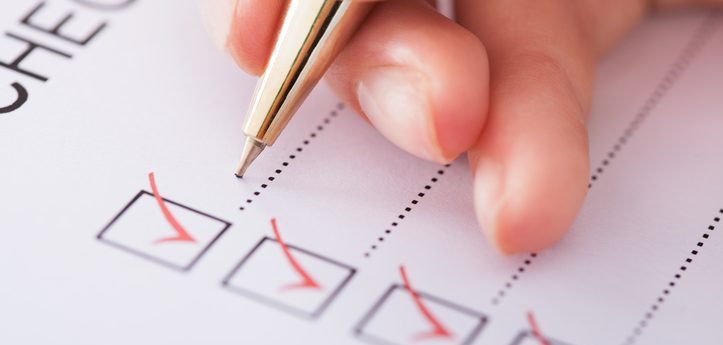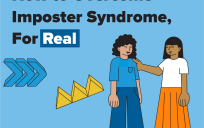 Executive functions are the mental skills that allow people to plan, focus, remember instructions and juggle multiple tasks successfully – things many of us take for granted on a daily basis, especially in the workplace.
Executive functions are the mental skills that allow people to plan, focus, remember instructions and juggle multiple tasks successfully – things many of us take for granted on a daily basis, especially in the workplace.
If you suffer from executive dysfunction, your ability to do any one of these things is impaired.
Clinically, executive dysfunction covers a wide range of cognitive, behavioral and emotional struggles. It often occurs as a result of another disorder, or with a brain injury. Many people with ADHD also suffer from executive dysfunction.
The following symptoms characterize Executive Function Disorder, according to ADDitude Magazine:
- time blindness, or an inability to plan for and keep in mind future events
- difficulty stringing together actions to meet long-term goals
- trouble organizing materials
- difficulty setting schedules
- trouble controlling emotions or impulses
- difficulty analyzing or processing information
In an academic setting, procrastination has also been linked to executive disfunction, according to a study conducted by Laura Rabin, Joshua Fogel and Katherine Nutter-Upham of the Brooklyn College of the City University of New York.
They say, “Procrastination is increasingly recognized as involving a failure in self-regulation such that procrastinators, relative to non-procrastinators, may have a reduced ability to resist social temptations, pleasurable activities, and immediate rewards… These individuals also fail to make efficient use of internal and external cues to determine when to initiate, maintain, and terminate goal-directed actions.”
If you’ve found yourself distracted or unable to concentrate on tasks, you may find one or more of these eight strategies useful:
Use a Checklist
This works especially well for a string of tasks that need to get done daily: check your email, sort incoming correspondence, file papers, return phone calls, etc. Print off a new list each workday and cross tasks off as they’re accomplished.
Avoid Temptations
Shut your door to keep out noise and visitors. Turn off email and social media. Mute your phone. If computer distractions are your biggest issue, consider installing Freedom, a free software program which blocks social media, email and other distracting programs, so that you can get your work done.
Play Classical Music
Studies have shown that music helps the brain get into a deeper state, allowing for greater concentration. Many types of music will work, but music without lyrics seems to work best.
Set a Timer
Creating deadlines—even artificial ones—can help with concentration, allowing you to complete tasks more efficiently. Set a timer for a specific amount of time and work to get the task done within the limit. If you know the task will take an especially long time, use the Pomodoro method, or other timed technique that gives you small “reward” breaks in between steady, timed work.
Break Large Tasks into Smaller Ones
Create “small wins” by accomplishing smaller, shorter tasks and build momentum toward completing larger projects.
Have a Weekly Check-In
Meet weekly with your boss – or an accountability partner – to discuss what you’ve accomplished (or not accomplished). Having to confess how many tasks are left undone at the end of the week can help spur your subconscious mind to get more done before the meeting.
Tackle the Big Tasks First
Tackle your biggest task first thing in the morning, when you’re fresh and have the energy, motivation, and ability to concentrate on it.
Tackle Several Small Tasks First
If you can’t face large tasks or goals early in the morning, then try completing several smaller—but still important—tasks instead. The purpose is to “move the needle forward” on goals by taking incremental steps toward them.
In summary, if none of these steps work, try using one or more in combination. The key is to know thyself. Take steps to guard yourself against the things that trigger distraction or procrastination during your workday.
This post is one of a series of posts about planning. You might also be interested in:
- 5 Reasons to Plan for the New Year
- Planning Your Year, Part 1: How to Plan a Productive Day
- Planning Your Perfect Year Part 2: The Nuts and Bolts
- Planning Your Perfect Year, Part 3: The Weekly Plan
- Planning Your Perfect Year, Part 4: Keeping the Momentum Going and Staying Productive with Weekly Reviews
Techniques:
- 3 “Deadline” Techniques to Trick Your Brain to Work More Effectively
- 5 Planning Techniques for Visually-Oriented People
- Visualize Your Entire Year on One Page Using Mind Maps
- Strategic Planning: How to Make Better Decisions
- 9 Guilt-Free Ways to Say No in the Workplace
And related:
Kelly Harmon is a GovLoop Featured Contributor. By day, she is the Webmaster of the National Agricultural Library, where she spends her time analyzing web statistics, supporting the various NAL web sites, and writing the occasional article for Tellus Magazine, produced by the Agricultural Research Service, USDA. By night, she is an award-winning journalist and author, and a member of the Science Fiction & Fantasy Writers of America and the Horror Writers Association. She’s a bit of a word-nerd, and relies on her planner to keep life sane. You can read her posts here.





Great tips! The checklist and music (I play smooth jazz) are super helpful. I am still working on tackling the big tasks first.
Hi Nicole! Glad you enjoyed the article. Thanks for reading!